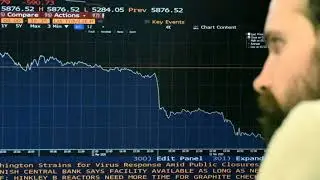A history lesson on the Black Death teaches us to resist the urge to panic about Covid-19
Reported today on City AM
For the full article visit: https://www.cityam.com/a-history-less...
When Pope Francis announced the cancellation of major public engagements, his tired face half-obscured by a handkerchief filled front pages across the world - before he headed into self-imposed isolation.Nearly 700 years ago, Pope Clement VI was trying very hard not to catch a different infectious disease that was then sweeping Europe. Known to contemporaries as the pestilence, modern science has identified it as the yersinia pestis bacterium: the plague.Clement locked himself in a large stone room with fires roaring either end night and day, and did not come out until it was all over. When he emerged, he found a world in which the graveyards were overflowing. One chronicler said that people were piled up in pits, layered like lasagne.The plague crossed the channel in 1348 and never left. Once it had finished ravaging Britain, 53 per cent of the population was dead. It would take until Tudor times for the numbers to recover.Yersinia pestis is the deadliest infectious disease ever to have hit Europe. It had surfaced many times throughout history, but never on this scale. The last major outbreak came in 1665, when it killed 20 per cent of the population. People still catch it today - especially hikers in rural America - but it is now treatable with antibiotics.Covid-19 is not in the same league as plague. Public anxiety is fuelled because everything we see about it focuses on the fatalities, provoking a crude correlation in our brains' primitive risk processing centres, leading us to associate Covid-19 with death. With our risk-fear circuitry only really able to classify dangers into "high", "low", or "none", we assume the worst because we have no personal experience of surviving Covid-19. In comparison, millions survive the flu many times in their lifetimes, so conclu































